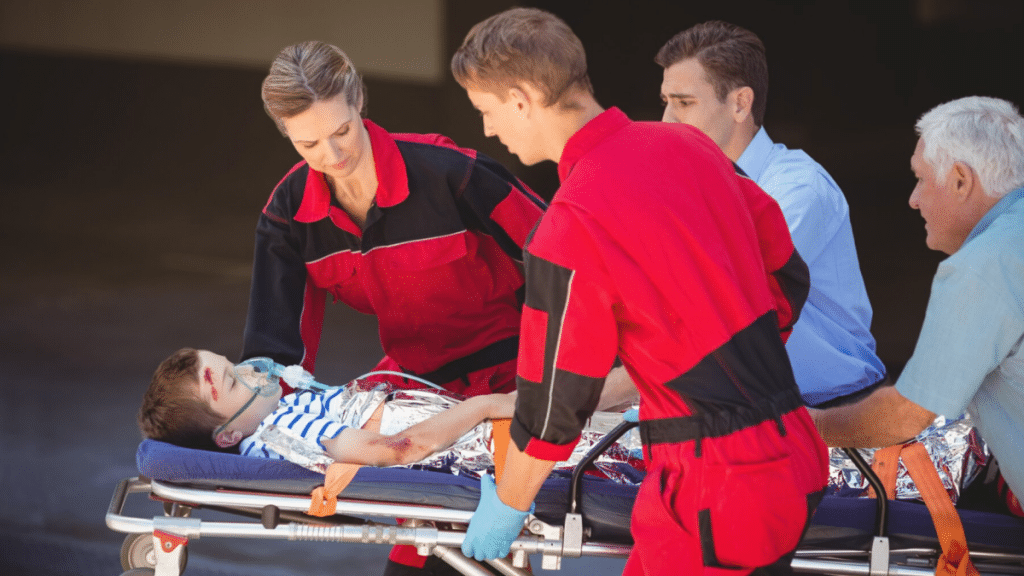Disasters, both natural and man-made, strike unexpectedly, leaving behind a trail of destruction and chaos. In such critical moments, the importance of swift and effective response cannot be overstated. Among the vital components of disaster preparedness and response, first aid stands as the frontline defense, playing a pivotal role in saving lives, alleviating suffering, and promoting recovery.
Read on as we explore the significance of first aid in disaster management, emphasizing its role in mitigating the impact of disasters and fostering resilience within communities.
Understanding First Aid in Disaster Management
First aid encompasses the initial care provided to individuals suffering from injury or illness before professional medical assistance arrives. In the context of disasters, where medical resources may be overwhelmed or inaccessible, the timely administration of first aid becomes paramount. This is where First Aid Pro Perth becomes valuable.
A first aid course involves basic interventions such as wound dressing, splinting fractures, controlling bleeding, and CPR (Cardiopulmonary Resuscitation). Moreover, first aid also includes psychological support, reassuring survivors, and managing shock and trauma.
The Crucial Role of First Responders
First responders, often comprising volunteers, community members, or trained professionals, are the backbone of any disaster response effort. Equipped with essential first aid knowledge and skills from First Aid Training Course Canberra, they are the first to arrive at the scene, providing immediate assistance to those in need. Their quick actions can make a significant
difference in the outcome, especially in situations where medical services are limited or delayed. Moreover, first responders act as liaisons between affected individuals and formal emergency services, ensuring a coordinated and effective response.
Empowering Communities through First Aid Training
One of the cornerstones of disaster preparedness is community resilience, which hinges upon the ability of individuals to respond effectively in times of crisis. Brisbane First Aid Course plays a central role in empowering communities to become more resilient and self-reliant. By imparting essential lifesaving skills to a broad cross-section of the population, communities can better cope with emergencies and reduce reliance on external assistance.
First aid training programs cover a range of topics, including basic first aid techniques, disaster response protocols, and the psychological aspects of crisis management.
Integration with Disaster Preparedness Plans
Effective disaster preparedness requires comprehensive planning and coordination at all levels of governance. First aid is integrated into these plans as a critical component of emergency response. This integration involves identifying key stakeholders, establishing communication channels, and pre-positioning essential supplies and equipment.
Additionally, conducting regular drills and exercises ensures that responders are prepared to mobilize swiftly and efficiently when disaster strikes. By embedding first aid within broader preparedness frameworks, communities can enhance their ability to withstand and recover from adversity.
Adaptability in Dynamic Situations
Disasters come in various forms and can evolve rapidly, presenting unique challenges to responders. First aid providers must possess the adaptability to respond effectively to dynamic situations and changing needs. This may involve improvising with available resources, prioritizing care based on severity, and collaborating with other responders to optimize outcomes.
Flexibility and resourcefulness are essential traits that enable first aid providers to navigate complex scenarios and provide the best possible care under challenging conditions.
Addressing Psychological First Aid
In addition to physical injuries, disasters often leave survivors grappling with emotional and psychological distress. Psychological first aid (PFA) is a specialized approach that focuses on addressing the immediate psychological needs of individuals affected by traumatic events. It involves providing practical support, promoting safety and comfort, and connecting survivors with additional mental health resources as needed.
PFA training equips responders with the skills to recognize signs of distress, offer empathetic support, and facilitate coping mechanisms, thereby promoting resilience and recovery in the aftermath of disaster.
Challenges and Opportunities
Despite its critical importance, first aid in disaster management faces several challenges, including resource constraints, logistical hurdles, and cultural barriers. Limited access to training, equipment, and supplies can impede the effectiveness of response efforts, particularly in vulnerable communities. Furthermore, language barriers and cultural differences may affect the delivery of first aid services, highlighting the need for culturally sensitive approaches. However, these challenges also present opportunities for innovation and collaboration.
Leveraging technology, community partnerships, and interdisciplinary approaches from registered training organisations (RTOs) can enhance the reach and impact of first aid initiatives, ultimately strengthening disaster resilience.
Conclusion
In conclusion, the role of first aid in disaster preparedness and response cannot be overstated. From empowering communities through training to providing immediate assistance on the ground, first aid serves as a lifeline in times of crisis.
By integrating first aid into comprehensive preparedness plans, investing in training and resources, and fostering collaboration among stakeholders, societies can enhance their resilience and ability to withstand and recover from disasters. Ultimately, the effectiveness of first aid in disaster management hinges upon collective action, solidarity, and a shared commitment to saving lives and alleviating suffering in the face of adversity.
